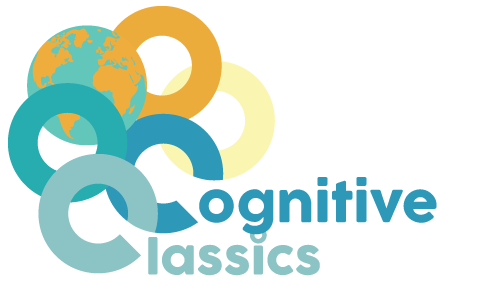
About
Who are the bibliographies for?
If you’re interested in cognitive approaches to literature but don’t know where to start, these bibliographies are for you. They should give you some starting points for diving into scientific areas of interest, as well as seeing how humanities scholars have put the science to use (and maybe contributed back to it) in their research. They’re also for you if you already work in the field and are starting a new project on an area of cognition you’re less familiar with. They may also be for you if you’re a cognitive scientist and want to know more about how the humanities are engaging with questions about the mind.
How are they structured?
Both the Cognitive Classics and the Cognitive Humanities bibliographies are structured around a set of themes. These are mostly ‘core’ cognitive topics, on which the primary research has traditionally been carried out by cognitive scientists (amongst whom we include philosophers of mind), and which do not have a strong tradition in the humanities (e.g. memory, social cognition, categorisation). They also include some ‘crossover’ topics, where the sciences and the humanities have equally significant—but historically often unconnected—traditions of inquiry (e.g. ambiguity, aesthetic experience, interpretation). For each topic in the humanities bibliography, there’s a set of ‘scientific’ resources and a set of ‘cognitive humanities’ resources, though the boundaries aren’t entirely firm, especially with papers co-authored by ‘scientists’ and ‘humanities scholars’. The classics bibliography aims to provide a reasonably comprehensive list of all the research published on these topics. A third, separate bibliography focuses on Empirical Methods, and sets out some important empirical paradigms as they have been used in the cognitive sciences and adopted or adapted for humanities research.
The annotations in the Cognitive Humanities bibliography are designed perform a similar function to article abstracts, being primarily descriptive rather than evaluative, but they are typically much shorter and angled towards what we have decided—subjectively—may be of particular relevance to you if you’re interested in the cognitive literary field or working in it already. The abstracts in the Cognitive Classics bibliography are the authors’ own.
Entries are given in chronological order. Papers and book chapters are prioritised over entire books to make them as useful as possible for gaining an efficient overview of an area.
How were they created?
The origin of this site is a reading list Felix and Katharine wanted to put together for a conference on a cognitive-as-well-as-classical theme; what began life as a gathering of relevant bibliography within Classics soon expanded outwards. Funding from the Fell Fund and St John’s College (Oxford) allowed Emily Troscianko to join and to design and compose the Cognitive Humanities and Empirical Methods sections. While the discussions were collaborative, these final results represent many hours of Emily’s work, and it is she who should be understood as the author of those two sections.
There’s something missing…
If you spot a gap we should fill (or just a broken link, or a full text we haven’t listed), please tell us!
Like any bibliography, these are subjectively selective. Because of Emily’s, Felix’s, and Katharine’s research backgrounds, this bibliography has a distinctly literary slant. If you know about research on other arts, or in history or any other field, that we should be aware of, please get in touch; we’re keen to make and keep this as live and inclusive a resource as possible.
All three bibliographies will be periodically updated, and we will be grateful for any input you can offer. In particular for the classics bibliography, where we aspire to offer comprehensive coverage, we know that we need help: many more Classics pieces exist that have not yet been included, and we hope that those gaps will be filled quickly as you contact us with bibliographic information—whether for something you’ve written or something you’ve come across that we haven’t listed.
In the meanwhile, we hope the website is helpful to you.
Felix Budelmann, Katharine Earnshaw, and Emily Troscianko
June 2017. Updated November 2020.
